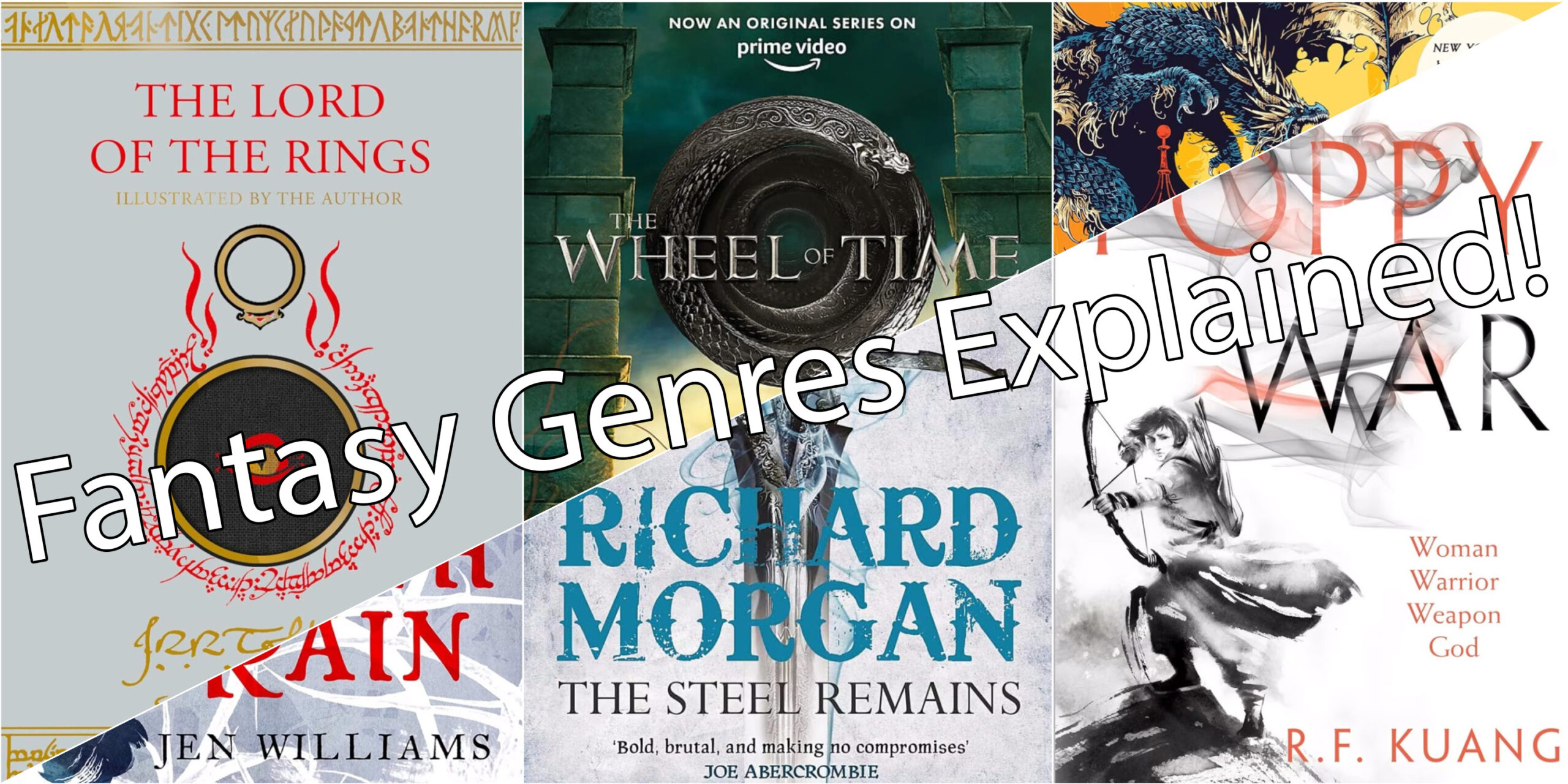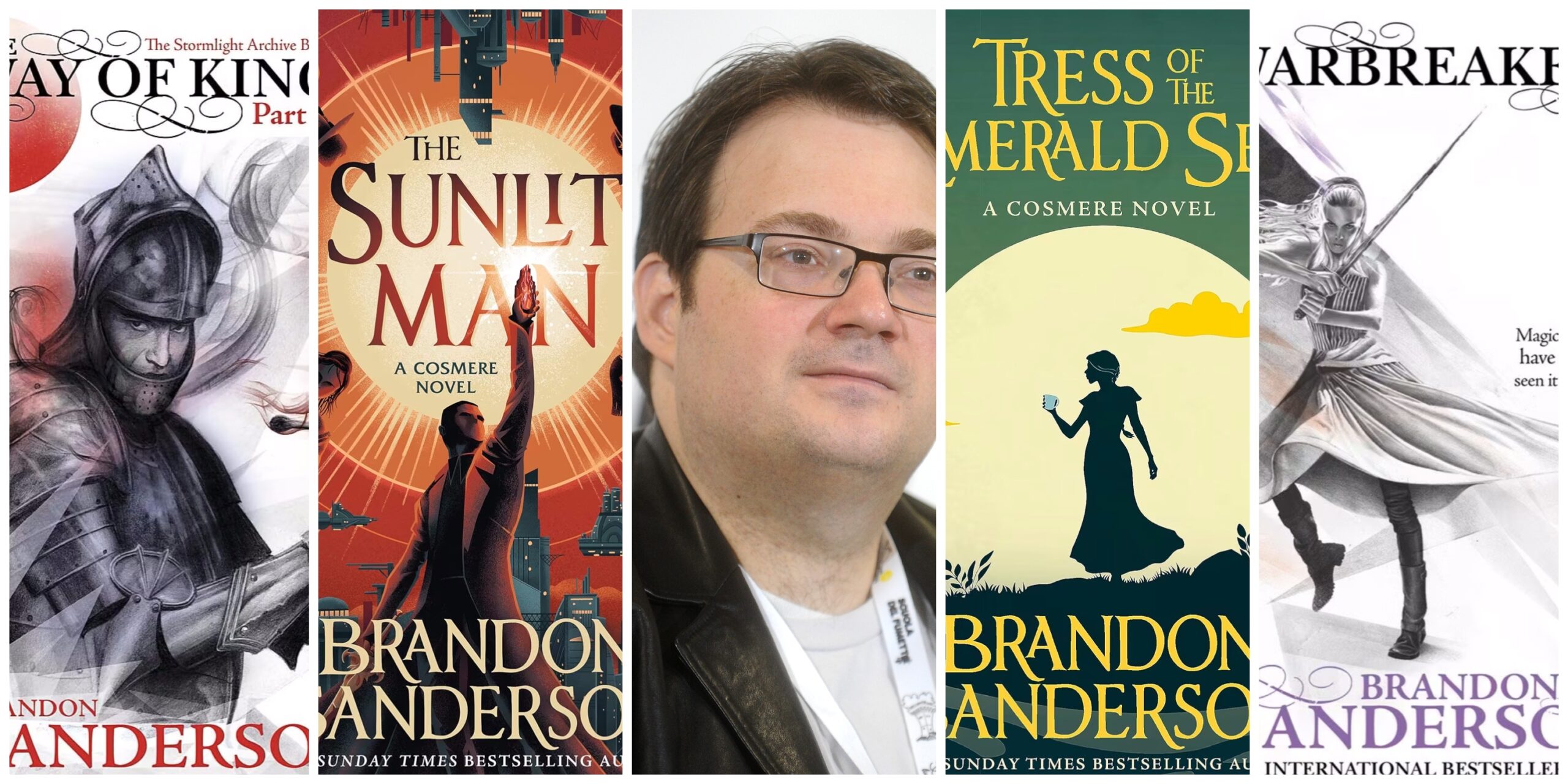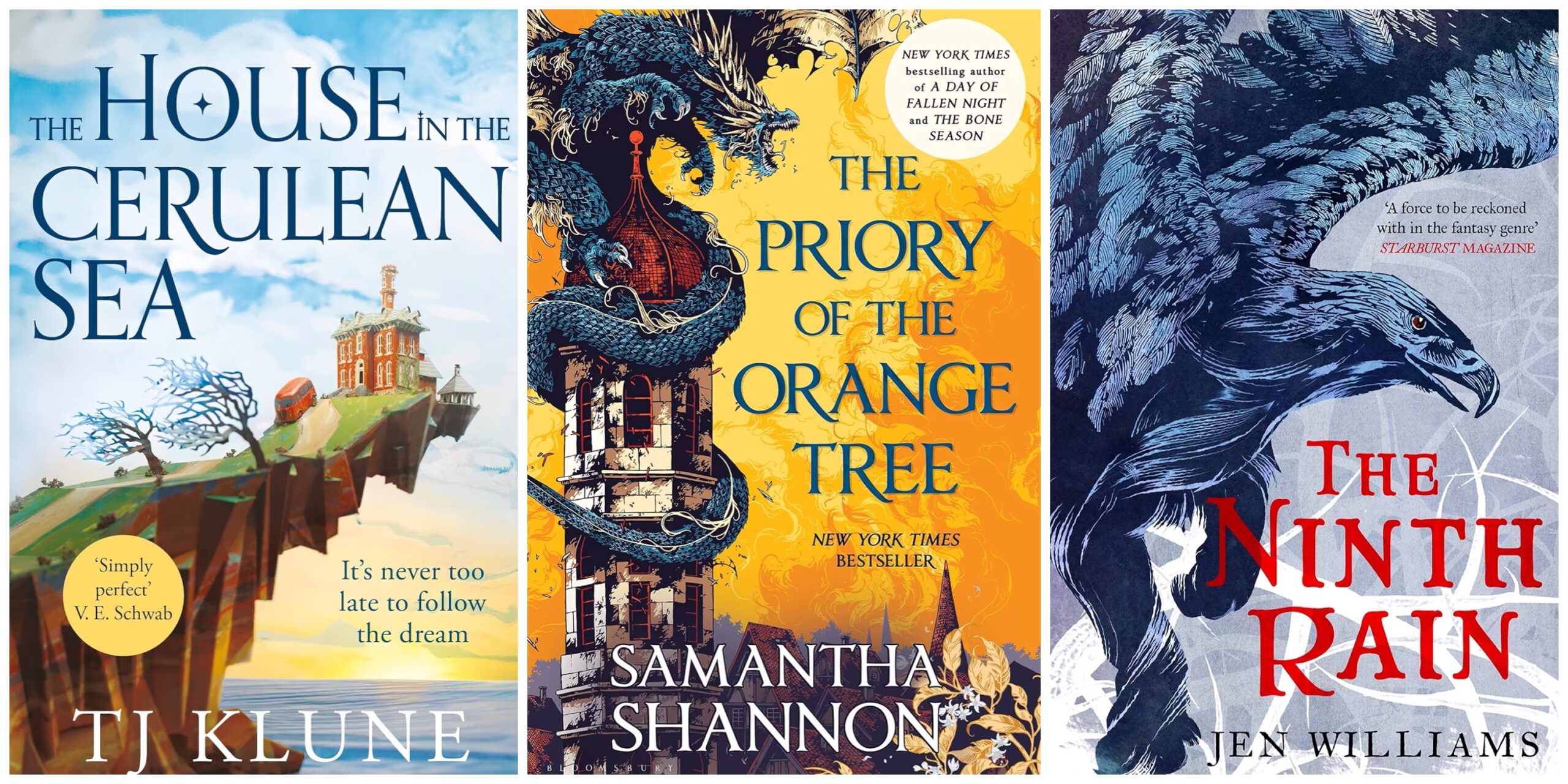What Is High Fantasy? Subgenres of the Fantasy Genre Explained
Fantasy fiction is an enduring, popular genre beloved by many readers all over the world. High fantasy stories come in many different genres, but what exactly makes epic fantasy epic fantasy, or urban fantasy an urban fantasy?
Fantasy Fiction Explained
In many cases, subgenre categorisation is kind of a marketing tool more important for publishers than readers, but this isn’t always true. Subgenres of a genre generally include works with a similar overall theme, aesthetic, and usage of tropes. These are the things that make epic fantasy different from, for example, urban fantasy or paranormal romance.
The distinction between high fantasy and urban fantasy can often be an easy one: high fantasy stories usually take place in a secondary world rather than the primary world that exists in real life. But it’s not always so easy, as there are good examples of urban fantasy stories that take place in an entirely secondary world such as Brandon Sanderson’s Yumi and the Nightmare Painter.
What Is High Fantasy?
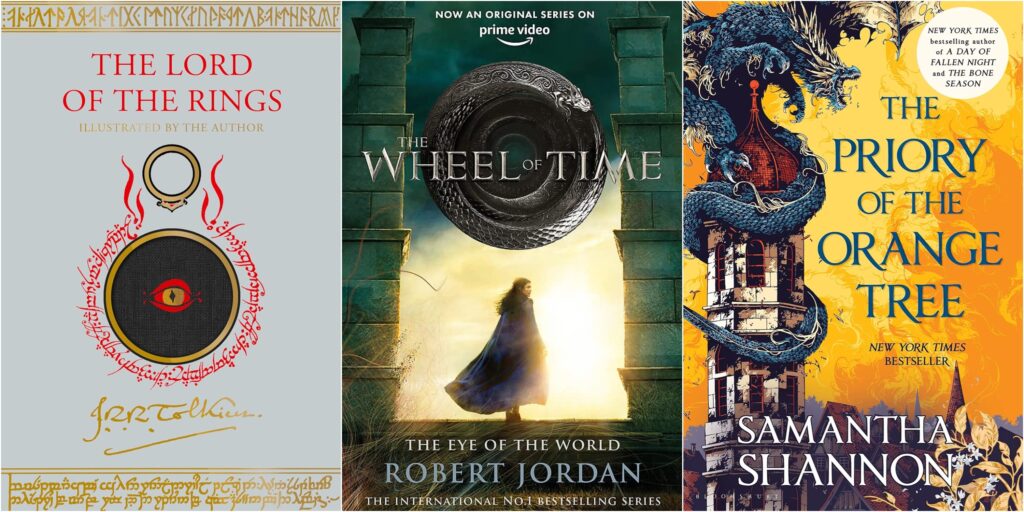
For many readers, high fantasy is characterised by elves and dragons, many magical and fantastical elements, and a setting that’s more or less a riff on medieval Europe. In many cases this is true, but not always, as the high fantasy genre these days has a lot of different things to offer. But it’s not totally off the mark. Think Lord of the Rings and everything major it’s influenced through the years, from the Dungeons and Dragons tabletop roleplaying game to video games like The Elder Scrolls – and of course, door-stopper fantasy novels like the A Song of Ice and Fire series.
High Fantasy, also called Epic Fantasy, is well-known for its massive word counts, intricate world building where often an entire world is created by the author, complete with cultures, species and languages.
High fantasy and epic fantasy stories often include themes of good versus evil, with big and impressive magical elements and mythical creatures. Easily one of the most popular subgenres of the Fantasy genre, high fantasy novels are many readers’ favourite thing to read.
My own introduction to the world of high fantasy was The Lord of the Rings, which is not only a classic but the literal grandfather of the fantasy genre. But these days, readers are almost spoiled for choice! The high fantasy genre has something to offer everyone, with diverse settings, unusual themes, and interesting characters by authors totally unafraid to innovate.
Related: The Priory of the Orange Tree: A Samantha Shannon Review
Dark Fantasy
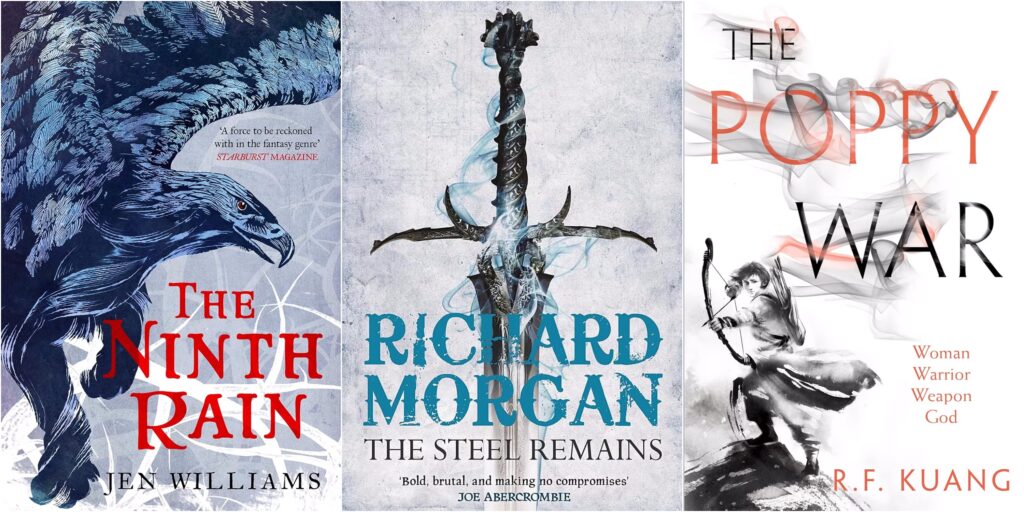
Dark Fantasy as a subgenre is very similar to high fantasy/epic fantasy, but has an overall darker tone and often has a more low fantasy feel, along with elements from the horror genre. Readers of dark fantasy can expect harsh, bleak worlds filled with characters who trend towards the greyer side of morality in a world where good choices are very hard to make.
This subgenre of fantasy isn’t for everyone, as many readers don’t enjoy the grimdark feeling and overall depressing tone of the world in comparison to the high fantasy genre, but it has its legions of fans. Stories in this genre often contain the same epic story and high quality fantasy world building as other works in the fantasy genre, just with a darker and grittier tone and plot to match.
Not all works in this subgenre are dark and depressing, though. Sometimes, dark fantasy is more about the tone and the overall vibe. Some examples of this subgenre include Coraline by Neil Gaiman or The Poppy War by R F Kuang, or Jen Williams’s The Ninth Rain.
RELATED: R F Kuang: The Poppy War review
Low Fantasy
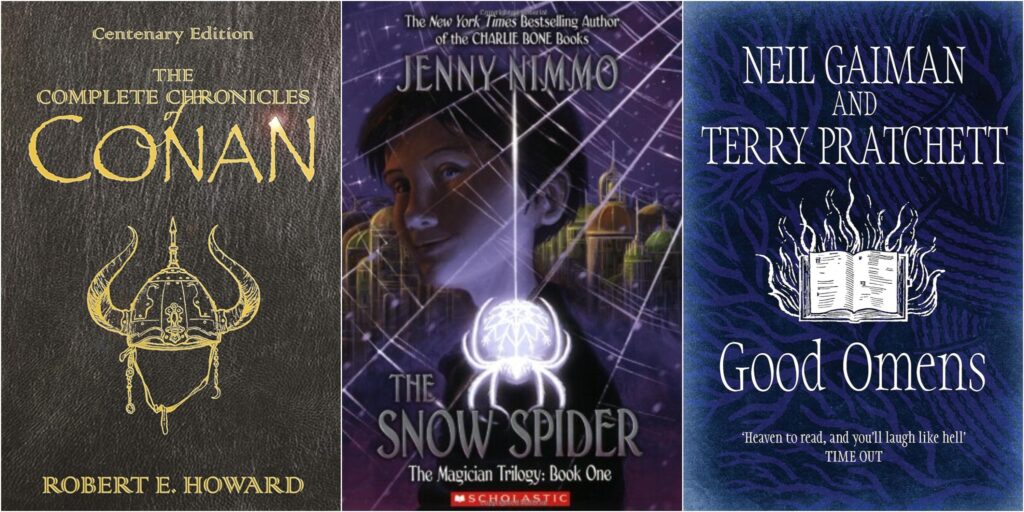
Low Fantasy is a part of the fantasy genre characterised mainly by its overall lower inclusion of fantasy elements such as magic, magical monsters and creatures, and other things found in the typical high fantasy world. Low Fantasy tends less towards epic fantasy battles and more towards heroic characters making their mark on the world in their own way.
Some low fantasy can be thought of as the typical sword and sorcery tales, where magic takes a back seat, such as Conan the Barbarian. Many characters set out on a quest of some kind, but unlike the typical epic story, the quest is often much more personal and small-stakes.
Some low fantasy doesn’t have a single magical element, being a story set in an alternative world but without anything magical elements. Low fantasy is a varied subgenre with takes ranging from heroic romance to character focused plot and every story in between.
Some low fantasy books take place in their own world, but others happen in a version of the real world. Some examples of low fantasy books include The Snow Spider by Jenny Nimmo, or Good Omens by Neil Gaiman or Terry Pratchett.
Contemporary Fantasy vs Urban Fantasy
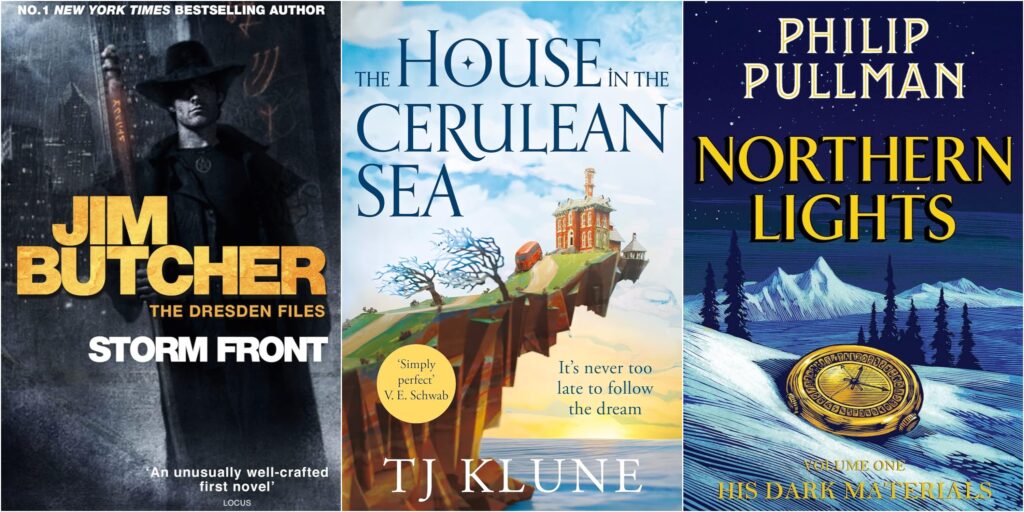
These two fantasy subgenres can be thought of as two sides of the same genre, since that’s really the easiest way of conceptualising the differences. Contemporary fantasy is fantasy set in an otherwise normal world, in a setting which doesn’t necessarily include big cities or urban sprawls. Usually set on Earth rather than an alternative fictional world, contemporary fantasy stories offer a different kind of feeling to other stories in the fantasy genre.
Harry Potter by J K Rowling is a good example of contemporary fantasy. But contemporary fantasy doesn’t need to be set in the real world – T J Klune’s fantastic The House in the Cerulean Sea is set in a secondary world and is a great example of a contemporary fantasy story.
Urban fantasy on the other hand is typically set within an urban setting, whether in big cities or their smaller cousins. The Dresden Files is an extremely popular example of this kind of fantasy. Many books in this category straddle the divide between the two subgenres, such as the extremely popular His Dark Materials trilogy by Philip Pullman. His Dark Materials takes its characters through a stunning variety of environments and different places, offering a great look at all sorts of interesting places as the characters complete their quest.
These kinds of tales often focus on the lives of people as they navigate the world, the effects of magical powers on life in an urban setting, as well as the effects of magical creatures in an otherwise normal world. One interesting thing about these fantasy books is that the characters need to deal with very modern problems on top of more fantastical situations – imagine a half-elf barista getting chewed out at work, or a werewolf courier tasked with delivering a package near the full moon.
Often a stark contrast to the epic battles and power struggle between good versus evil seen in other parts of the fantasy genre. Primary world fantasy is a common sight in this subgenre.
RELATED: 7 Of The Best Queer Fantasy Books You Might Have Missed
Science Fantasy
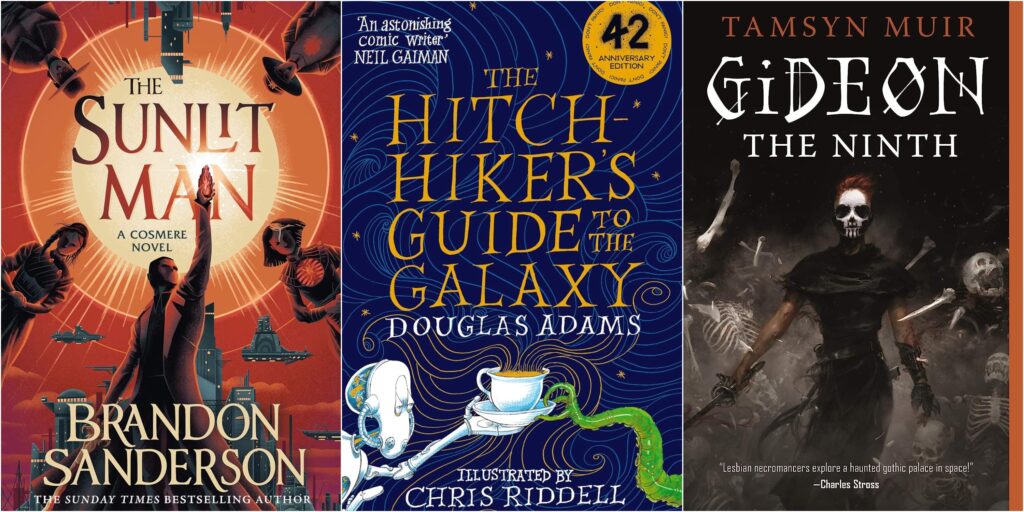
Science Fantasy is a unique take on the fantasy genre which blends fantasy elements such as magic with science fiction aesthetics and themes. This kind of fantasy story often takes place in an alternate world, but doesn;t necessarily have to. The most well-known example of it is probably Star Wars.
Often the magic in this subgenre is included with the technology, giving it a different feel to the magical and fantastical elements in the typical epic fantasy genre story.
Popular examples from the world of literature include Gideon the Ninth by Tamsyn Muir, or The Hitchhiker’s Guide to the Galaxy by Douglas Adams. As a genre, science fantasy spans the entire length of the spectrum from super serious to entirely comedic, so there’s something for everyone.
